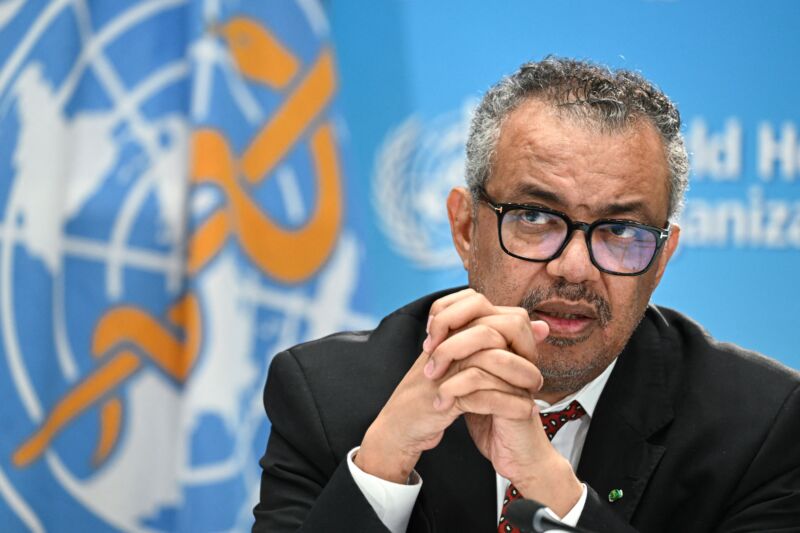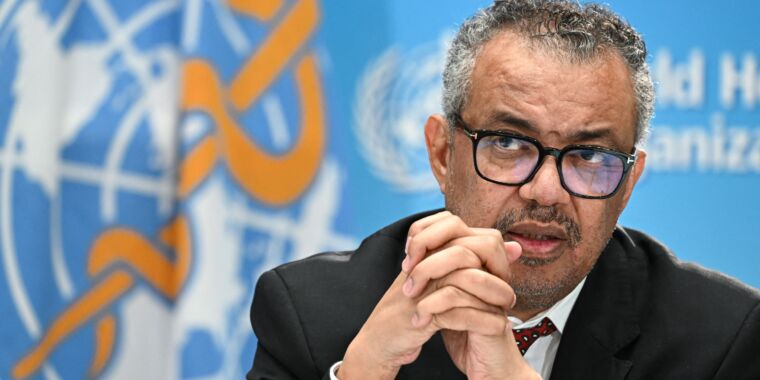
The World Health Organization on Friday declared an end to the emergency phase of the COVID-19 pandemic, stressing that the health threat is not over.
“Yesterday the emergency committee met for the 15th time and recommended that I end the public health emergency of international concern. [PHEIC]said WHO Director-General Tedros Adhanom Ghebreyesus in a press briefing on Friday. “I took that advice.”
The WHO declared the PHEIC more than three years ago on January 30, 2020. Since then, the UN organization estimates that at least 20 million people have died from COVID-19, while the SARS-CoV-2 virus has caused major disruption and devastation worldwide. , leaving deep scars.
While Tedros said he has “great hope” that the emergency is over, he was quick to emphasize that the fight is not over. “Last week, COVID-19 claimed a life every three minutes — and that’s just the deaths we know of,” he said. “Right now, thousands of people around the world are fighting for their lives in intensive care units. And millions more continue to live with the debilitating effects of the post-COVID-19 condition. This virus is here to stay. It’s still deadly, and it’s still changing.”
WHO officials stressed they expect to continue to see periodic waves of infections and new variants. While crisis mode is over for now, countries need to move into a new phase of controlling the virus, being prepared for pandemic emergency measures. Officials warned that countries should not dismantle the surveillance and response systems built up over the past three years, even though we’ve already seen a winding down of genetic surveillance for new variants.
The WHO also kept on the table the possibility of reinstating a health emergency declaration for COVID-19 if the global situation worsens. Tedros noted on Friday that he had decided to exercise a never-before-used provision in the International Health Regulations to create a review committee that will develop long-term recommendations for COVID-19 management.
“I will not hesitate to convene another emergency committee should COVID-19 endanger our world again,” Tedros said.
Maria Van Kerkhove, WHO’s technical lead on COVID-19, made a moving plea for countries to continue developing and maintaining pandemic preparedness and response plans:
Today we sit here hopeful and humble, looking ahead. Look forward to what is to be done, look forward [to] what still needs to be done to ensure we don’t lose the momentum of the past three and a half years. While we are hopeful and looking to the future, we should not forget the amount of deaths that have occurred. As the [director-general] so to speak, it shouldn’t have been. And it doesn’t have to be that way again.
So we can’t forget the images of the hospitals, of the ICUs that were full, of medical gloves filled with warm water holding the hands of our loved ones who died, with health workers making sure they didn’t die alone. We can’t forget those pyres, we can’t forget the graves that were dug. I won’t forget them. None of us here will forget them. And that drives us every day to do better and do more. So while I’m hopeful, and I really am, I’m quite emotional because there’s more we need to do.

